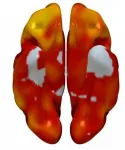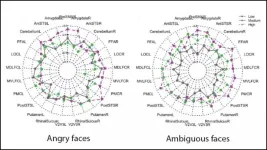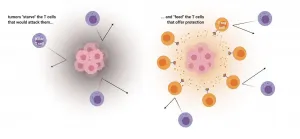INFORMATION:
The PESA study is cofinanced equally by the CNIC and Santander Bank. PESA receives additional funding from the Instituto de Salud Carlos III, Madrid, Spain (ISCIII, PI15/02019, PI17/00590 & PI20/00819), the European Regional Development Fund (ERDF - A Way to Build Europe), and the European Social Fund (ESF - Investing in Your Future ). The CNIC is supported by the ISCIII, the MCIN and the Pro-CNIC Foundation. The BBRC is financed mainly by the Fundación "la Caixa", the EU/EFPIA (European Federation of Pharmaceutical Industries and Associations) Innovative Medicines Initiative Joint Undertaking EPAD, and the Innovative Medicines Initiative 2 Joint Undertaking. This joint project was supported by the European Union Horizon 2020 research and innovation programme and the EFPIA.
About the CNIC
The Centro Nacional de Investigaciones Cardiovasculares (CNIC), directed by Dr. Valentín Fuster, is dedicated to cardiovascular research and the translation of knowledge gained into real benefits for patients. The CNIC, recognized by the Spanish government as a Severo Ochoa center of excellence, is financed through a pioneering public-private partnership between the government (through the Carlos III Institute of Health) and the Pro-CNIC Foundation, which brings together 12 of the most important Spanish private companies.
Sobre el BarcelonaBeta Brain Research Center
The Barcelonaβeta Brain Research Center (BBRC) is the research center of the Fundación Pasqual Maragall and has been supported since its creation by Fundación "la Caixa". The BBRC is dedicated to the prevention of Alzheimer disease and the study of cognitive functions affected during healthy and pathological aging.
Spanish scientists uncover early links between cardiovascular risk and brain metabolism
The report, published in JACC, is important because it suggests that very early intervention in modifiable cardiovascular risk factors could prevent the development of dementia, a disease for which there is currently no cure
2021-02-15
(Press-News.org) The links between cardiovascular disease and cognitive impairment begin years before the appearance of the first clinical symptoms of either condition. In a study carried out at the Centro Nacional de Investigaciones Cardiovasculares (CNIC) in partnership with Santander Bank and neuroimaging experts at the Barcelonaβeta Brain Research Center (BBRC, the research center of the Fundación Pasqual Maragall), the investigators have identified a link between brain metabolism, cardiovascular risk, and atherosclerosis during middle age, years before the first appearance of symptoms.
The report, published in the Journal of the American College of Cardiology (JACC), is important because it suggests that intervention in a modifiable condition (cardiovascular disease) could prevent the development of dementia, a disease for which there is currently no cure.
Dr. Valentín Fuster, CNIC and Mount Sinai Heart General Director, Physician-in-Chief of the Mount Sinai Hospital. and a lead author on the study, explained that "although everybody knows about the importance of caring for ourselves and controlling cardiovascular risk factors in order to avoid a heart attack, the association of these same risk factors with cognitive decline may increase awareness of the need to acquire healthy habits from the earliest stages of life."
Moreover, the results provide yet more support for the importance of implementing primary cardiovascular prevention strategies in middle age as a valuable therapeutic approach to slowing or even halting brain alterations that could contribute to future cognitive decline.
Cognitive impairment
The advanced stages of vascular disease and dementia often occur together, but until now this association has not been documented at earlier stages. The CNIC-coordinated study, led by Dr. Marta Cortés Canteli, shows that in middle age, years before any clinical signs appear, atherosclerosis and cardiovascular risk factors already show an association with low metabolism in brain regions implicated in the future development of dementia, especially Alzheimer disease.
The advanced stages of neurodegenerative and vascular diseases often occur together, and research in recent years has established close links between cognitive decline and a number of cardiovascular risk factors, including hypertension, obesity, and high cholesterol.
Using advanced imaging by positron emission tomography (PET), the research team quantified brain metabolism in more than 500 participants in the PESA-CNIC-Santander study. The participants had an average age of 50 years and no symptoms, but already had evidence of atherosclerosis in their arteries.
PESA-CNIC-Santander, directed by Dr. Valentín Fuster, is a prospective study of more than 4000 asymptomatic middle-aged participants who have been exhaustively assessed for the presence and progression of subclinical atherosclerosis since 2010.
The new study reveals a link between elevated risk of a cardiovascular event and low brain metabolism. "When brain metabolism declines, the brain's ability to handle adverse events can be compromised. Depending on the brain area affected, this can lead to a range of distinct problems," explained study co-first author Dr. Cortés Canteli, a CNIC investigator and Miguel Servet fellow.
Cardiovasular risk
"We found that a higher cardiovascular risk in apparently healthy middle-aged individuals was associated with lower brain metabolism in parietotemporal regions involved in spatial and semantic memory and various types of learning," said Dr. Cortés Canteli. Dr. Juan Domingo Gispert, head of the Neuroimaging group at the BBRC, noted that "the brain areas showing low metabolism in participants with higher cardiovascular risk are the same areas affected in Alzheimer disease, suggesting that these individuals may have higher than normal vulnerability to this disease."
"We think that cardiovascular risk factors the affect the large vessels carrying blood from the heart to the brain also affect the small vessels in the brain," asserted Dr. Fuster.
The study is the largest of its type to date in a healthy middle-aged population and could signal a paradigm change in the understanding of the links between vascular and brain disease, say the authors.
Among the modifiable cardiovascular risk factors most closely associated with a reduction in brain metabolism, the investigators saw the biggest effect with hypertension. "We found that the same risk factors that damage the heart and the large arteries, and especially hypertension, are closely linked to the decline in brain metabolism years before the appearance of symptoms," said Dr. Fuster.
Atherosclerotic plaques
The research team also found that a higher number of plaques in the carotid arteries, which carry blood to the brain, was associated with lower brain metabolism in areas of the limbic system and the parietal lobe, both of which are intimately linked to the development of Alzheimer disease.
"The next step will be to determine whether individuals with subclinical atherosclerosis in the carotid arteries and low brain metabolism at the age of 50 go on to experience cognitive decline 10 years later," said Dr. Cortés Canteli.
Dr. Juan Domingo Gispert remarked that "there is abundant evidence linking cardiovascular risk factors and Alzheimer disease. If we can gain a more precise understanding of this relationship at asymptomatic disease stages, we will be in a position of design new strategies to prevent Alzheimer, matching the success of current strategies to prevent cardiovascular disease."
These results will be a major stimulus for the implementation of early intervention strategies to reduce the incidence of cognitive decline in old age.
ELSE PRESS RELEASES FROM THIS DATE:
Mid-life cardiovascular disease prevention may protect against later dementia
2021-02-15
Employing cardiovascular disease prevention strategies in mid-life may delay or stop the brain alterations that can lead to dementia later in life, according to a study in the Journal of the American College of Cardiology.
Atherosclerosis, or buildup of fats, cholesterol and other substances in and on artery walls, is the underlying cause of most cardiovascular diseases, which is the leading cause of death around the world. Dementia is also among the top causes of death and disability around the world, with 50 million people currently living with dementia. ...
Existing heart failure drug may treat potential COVID-19 long-hauler symptom
2021-02-15
In a new study out of University of California San Diego School of Medicine, researchers found a drug used for heart failure improves symptoms associated with postural orthostatic tachycardia syndrome, otherwise known as POTS. This complex, debilitating disorder affects the body's autonomic nervous system, causing a high heart rate, usually when standing.
Writing in the February 15, 2021 online issue of the Journal of the American College of Cardiology, study authors investigated the drug ivabradine and its effects on heart rate, quality of life and plasma norepinephrine levels in persons living with POTS. Norepinephrine is a stress hormone and neurotransmitter. In blood plasma, it is used as a measure of sympathetic nervous system activity. Trial participants experienced a reduction in ...
Lower testosterone during puberty increases the brain's sensitivity to it in adulthood
2021-02-15
Young men with lower testosterone levels throughout puberty become more sensitive to how the hormone influences the brain's responses to faces in adulthood, according to new research published in JNeurosci.
During prenatal brain development, sex hormones like testosterone organize the brain in permanent ways. But research suggests that testosterone levels during another developmental period -- puberty -- may have long-lasting effects on brain function, too.
Liao et al. examined the relationship between puberty testosterone levels and the brain's response to faces. Liao's team recruited 500 men around age 19 who had been participants in the Avon Longitudinal Study of Parents and ...
Cheap, potent pathway to pandemic therapeutics
2021-02-15
PITTSBURGH, Feb. 15, 2021 - By capitalizing on a convergence of chemical, biological and artificial intelligence advances, University of Pittsburgh School of Medicine scientists have developed an unusually fast and efficient method for discovering tiny antibody fragments with big potential for development into therapeutics against deadly diseases.
The technique, published today in the journal Cell Systems, is the same process the Pitt team used to extract tiny SARS-CoV-2 antibody fragments from llamas, which could become an inhalable COVID-19 treatment for humans. This approach has the potential to quickly identify multiple potent nanobodies that target different parts of a pathogen--thwarting ...
Posttraumatic stress after natural disasters
2021-02-15
What The Study Did: Data from four studies of children and adolescents exposed to major U.S. hurricanes were pooled to examine posttraumatic stress symptoms after those events and the factors associated with them.
Authors: Betty S. Lai, Ph.D., of Boston College in Chestnut Hill, Massachusetts, is the corresponding author.
To access the embargoed study: Visit our For The Media website at this link https://media.jamanetwork.com/
(doi:10.1001/jamanetworkopen.2020.36682)
Editor's Note: The article includes conflict of interest and funding/support disclosures. Please see the article ...
New immunotherapy target discovered for malignant brain tumors
2021-02-15
Scientists say they have discovered a potential new target for immunotherapy of malignant brain tumors, which so far have resisted the ground-breaking cancer treatment based on harnessing the body's immune system. The discovery, reported in the journal END ...
Moiré patterns facilitate discovery of novel insulating phases
2021-02-15
RIVERSIDE, Calif. -- Materials having excess electrons are typically conductors. However, moiré patterns -- interference patterns that typically arise when one object with a repetitive pattern is placed over another with a similar pattern -- can suppress electrical conductivity, a study led by physicists at the University of California, Riverside, has found.
In the lab, the researchers overlaid a single monolayer of tungsten disulfide (WS2) on a single monolayer of tungsten diselenide (WSe2) and aligned the two layers against each other to generate large-scale moiré patterns. The atoms in both the WS2 and WSe2 layers are arranged in a two-dimensional honeycomb lattice with a periodicity, ...
New skin patch brings us closer to wearable, all-in-one health monitor
2021-02-15
Engineers at the University of California San Diego have developed a soft, stretchy skin patch that can be worn on the neck to continuously track blood pressure and heart rate while measuring the wearer's levels of glucose as well as lactate, alcohol or caffeine. It is the first wearable device that monitors cardiovascular signals and multiple biochemical levels in the human body at the same time.
"This type of wearable would be very helpful for people with underlying medical conditions to monitor their own health on a regular basis," said Lu Yin, a nanoengineering Ph.D. student at UC San Diego and co-first author of the study published Feb. 15 in Nature Biomedical Engineering. "It would also serve as a great tool for remote patient monitoring, ...
Insight about tumor microenvironment could boost cancer immunotherapy
2021-02-15
PITTSBURGH, Feb. 15, 2021 - A paper published today in Nature shows how chemicals in the areas surrounding tumors--known as the tumor microenvironment--subvert the immune system and enable cancer to evade attack. These findings suggest that an existing drug could boost cancer immunotherapy.
The study was conducted by a team of scientists at UPMC Hillman Cancer Center and the University of Pittsburgh School of Medicine, led by Greg Delgoffe, Ph.D., Pitt associate professor of immunology. By disrupting the effect of the tumor microenvironment on immune cells in mice, the researchers were able to shrink tumors, prolong survival and increase sensitivity to immunotherapy.
"The majority of people don't respond to immunotherapy," said Delgoffe. "The reason ...
Light used to detect quantum information stored in 100,000 nuclear quantum bits
2021-02-15
Researchers have found a way to use light and a single electron to communicate with a cloud of quantum bits and sense their behaviour, making it possible to detect a single quantum bit in a dense cloud.
The researchers, from the University of Cambridge, were able to inject a 'needle' of highly fragile quantum information in a 'haystack' of 100,000 nuclei. Using lasers to control an electron, the researchers could then use that electron to control the behaviour of the haystack, making it easier to find the needle. They were able to detect the 'needle' with a precision of 1.9 parts per million: high enough to detect a single quantum bit in this large ensemble.
The technique makes it possible to send highly fragile ...
LAST 30 PRESS RELEASES:
Mayo Clinic study finds single dose of non-prescribed Adderall raises blood pressure and heart rate in healthy young adults
Engineered immune cells show promise against brain metastases in preclinical study
Improved EV battery technology will outmatch degradation from climate change
AI cancer tools risk “shortcut learning” rather than detecting true biology
Painless skin patch offers new way to monitor immune health
Children with poor oral health more often develop cardiovascular disease as adults
GLP-1 drugs associated with reduced need for emergency care for migraine
New knowledge on heritability paves the way for better treatment of people with chronic inflammatory bowel disease
Under the Lens: Microbiologists Nicola Holden and Gil Domingue weigh in on the raw milk debate
Science reveals why you can’t resist a snack – even when you’re full
Kidney cancer study finds belzutifan plus pembrolizumab post-surgery helps patients at high risk for relapse stay cancer-free longer
Alkali cation effects in electrochemical carbon dioxide reduction
Test platforms for charging wireless cars now fit on a bench
$3 million NIH grant funds national study of Medicare Advantage’s benefit expansion into social supports
Amplified Sciences achieves CAP accreditation for cutting-edge diagnostic lab
Fred Hutch announces 12 recipients of the annual Harold M. Weintraub Graduate Student Award
Native forest litter helps rebuild soil life in post-mining landscapes
Mountain soils in arid regions may emit more greenhouse gas as climate shifts, new study finds
Pairing biochar with other soil amendments could unlock stronger gains in soil health
Why do we get a skip in our step when we’re happy? Thank dopamine
UC Irvine scientists uncover cellular mechanism behind muscle repair
Platform to map living brain noninvasively takes next big step
Stress-testing the Cascadia Subduction Zone reveals variability that could impact how earthquakes spread
We may be underestimating the true carbon cost of northern wildfires
Blood test predicts which bladder cancer patients may safely skip surgery
Kennesaw State's Vijay Anand honored as National Academy of Inventors Senior Member
Recovery from whaling reveals the role of age in Humpback reproduction
Can the canny tick help prevent disease like MS and cancer?
Newcomer children show lower rates of emergency department use for non‑urgent conditions, study finds
Cognitive and neuropsychiatric function in former American football players
[Press-News.org] Spanish scientists uncover early links between cardiovascular risk and brain metabolismThe report, published in JACC, is important because it suggests that very early intervention in modifiable cardiovascular risk factors could prevent the development of dementia, a disease for which there is currently no cure





